Finding the light: the inarguable inspiration that’s Michelle Obama
The past few years have been tough, even for former US First Lady Michelle Obama. Her new book is a beacon of hope, detailing her challenges and her strategies for overcoming them.
Lifestyle
Don't miss out on the headlines from Lifestyle. Followed categories will be added to My News.
Accomplished lawyer, best-selling author and the former US First Lady who popularised the edict to “go high” when others “go low”, Michelle Obama is an inarguable inspiration.
Following the international success of her first memoir, Becoming, she has penned a deeply personal new book which offers guidance on “overcoming in uncertain times”.
In this Australian exclusive interview, Obama provides insight into the challenges of her own celebrated marriage, her advice for dealing with bitterness and anger, and the steps she took to process the challenges of the past few years.

You write about the way your father Fraser dealt with his worsening MS (Multiple Sclerosis) battle and how he would fall, get up and carry on. It sounds like he taught you an immense amount about resilience. What advice do you have for people who don’t have the benefit of a solid role model? What are ways they can break generational patterns, overcome early limitations and succeed?
You know, I feel so lucky to have had such a wonderful father who taught me so much about how to live a life of grace and dignity, but I know that many people aren’t as lucky. A lot of people don’t have parents who are there for them, to guide them through their toughest moments.
And that’s where community comes in. It’s OK to look outside the four walls of your home — to neighbours and teachers, to aunties and uncles and friends. Over the years, a lot of the people I’ve leaned on have been those I met at school or at work — and that’s good. It offers you perspectives that you might not get from your nuclear family.
As for overcoming early limitations and generational patterns, that’s a tougher one. All I know is that it doesn’t happen overnight. When I tell my story and talk about all the work I put in — spending three hours on a bus every day to go to high school, being one of the few people of colour at my university — it makes it seem like I had some grand plan. But the reality is that I sort of took things one day at a time. I had my goals in high school and I had my goals in college, and I reached them incrementally, taking on one task as it came.
None of it was as easy and as smooth as it seems now. And how I think of it now is this: All that success was rooted in my willingness to keep going.
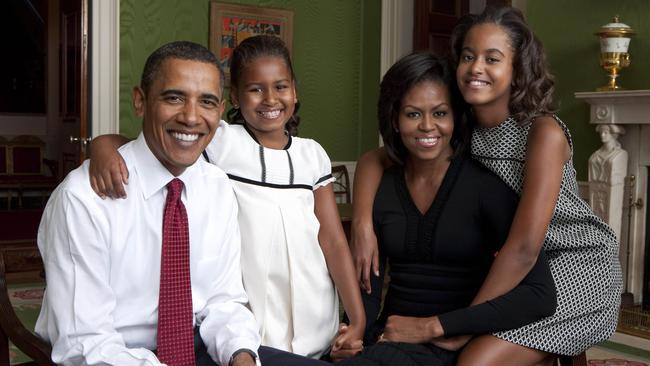
You say the pandemic has made you feel wobbly and unsettled — what have been the things that have grounded you during these uncertain past few years (for those of us who are hopeless at knitting)? How have you overcome the anger and despondency you say you have felt at times?
What I usually try to get at when I talk about knitting is the power of doing something small as a way to remind yourself of your capacity to build, create and succeed. So I think of knitting as much as a metaphor as it is a recommendation. For others, doing something small might be cooking or baking, drawing or building — it can certainly be anything you want it to be. But I really recommend giving yourself a goal you can achieve and working toward making it a reality. It just helps put us in the right mindset to take on the challenges life brings our way.
And as for overcoming anger and despondency, I would say that I have practised myself into peace.
Knitting — the power of the small that I just alluded to — was one way, but there are also many others. I rely a lot on my friends (and I actually refer to them as my Kitchen Table and get into this in the book).
Having a Kitchen Table of people you can talk to and turn to when life gets difficult can really help us from falling into despondency. Sharing a glass of wine or just checking in with your friends can help insulate you from a harsh world. I believe that reaching outward, instead of recoiling inward, is key to overcoming anything.

You speak of a world that is both beautiful and broken and cite the global events that have shaken and unsettled us in recent years. Where do you find the beauty, where are you happiest?
This is a great question. For me, personally, I am deeply inspired by what I see in young women all across our world. I work with a lot of them through the Obama Foundation and every time I meet one, I can see their resilience, their hope, their passion for making the world a better place. And that, in turn, brings me so much joy and happiness.
There are so many girls out there who are ready and willing to lead the way, not just for their families but for their communities. Meeting these girls and shining a light on their strength is something that I will always be committed to — and I know it’s something we can all be inspired by.
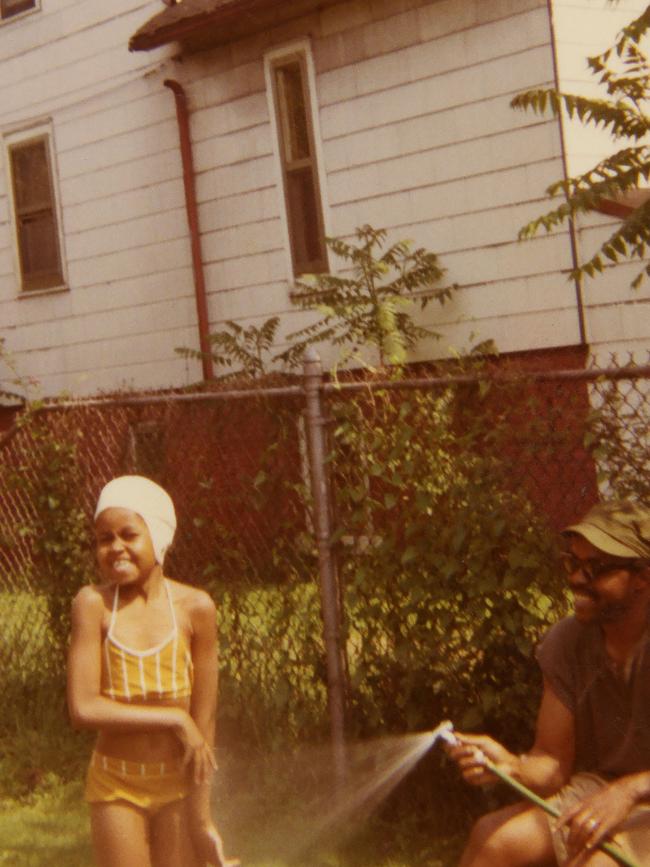

A lot of things have been written about you that have frustrated you or painted an incorrect picture of who you are and what you stand for — how have you chosen what to respond to and what to ignore? In this era of fake news, have you felt a responsibility to make the truth known when you and your family have been inaccurately portrayed?
When you are in the public eye, you are certainly tempted at first to want to call out the media and correct their misconceptions. But I have learned that sometimes people just don’t want to be honest or say nice things about you, and there’s nothing you can do to change that. It’s especially true in politics.
Nonetheless, I still try to be as honest as possible. I try to adhere to the truth, always. That, to me, is the best way to help folks see through the lies and misinformation that’s
out there.
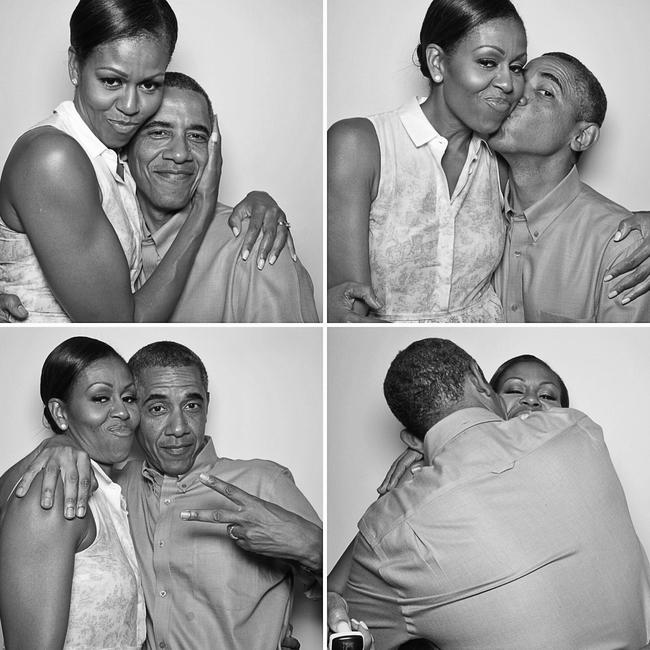
You talk about feelings of not enoughness and anxiety before major speaking events — what are your best tips for overcoming those fears and getting outside of your comfort zone?
Oh, good question. Speaking can be so nerve-racking for so many people. For someone who is going out there and speaking for the first time, I think it’s important to remember that in most settings, the audience doesn’t want you to fail. They want you to succeed and they probably want to hear what you have to say. The truth is, you’re probably going to be a lot more critical than anyone listening to you will be.
Another thing I do is to remind myself that I can give myself different pathways for succeeding when I’m out there — if I am speaking and I know there is a teleprompter, I also carry a printout of my speech. And if all else fails, I’ve practised enough to get myself through to the end. Knowing that I have a backup plan makes me feel more prepared and confident when I go out there.
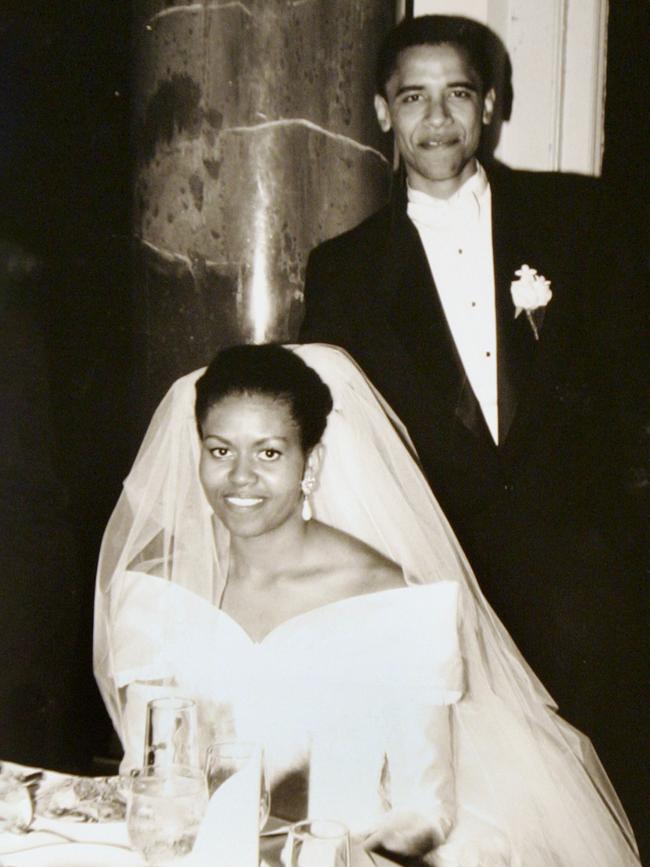
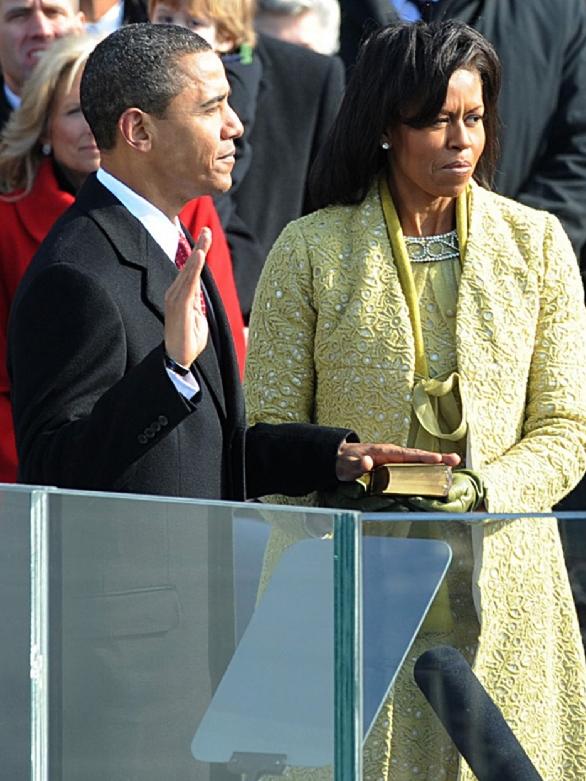
It is lovely that your daughters rented an apartment together and are friends as well as sisters. Has it always been that way or did you have to work to cultivate that friendship between them? Have you found it difficult to gradually adjust to them growing up and away from you?
Like all teenage girls, they had their moments where they would bicker and argue, but I knew it wouldn’t last long. And I remember telling them to just wait — that one day they would turn around and find a friend in each other. And here we are today! As a mother, I just love seeing it.
And of course, I wish my babies were next to me every second of every day. It’s not always easy to watch them grow up and move away from home. But I am really proud of the way they have handled their incredibly unusual upbringing. And I still call, text and video chat with them as often as I can — so they are never too far away!
You write of marriage as a constant choice — choosing again and again to remain — and of the couples counselling you and your husband underwent when your children were young. Do you think this is a message that is often missed today, particularly when you look at high divorce rates, that marriages take work and aren’t always meant to be easy?
Yes, I do. I think the culture of dating and relationships is so different than when I was young, and that the idea of having so many options has really clouded the idea of commitment.
Marriages are supposed to be challenging; building a life together with another human always will be. You are not one person occupying one body. You are two distinct individuals, who may have grown up differently or have different personalities or life outlooks, and you are trying to live as a single unit. That’s inherently complicated. But it’s also full of so much possibility.
I know that there were plenty of moments where Barack and I wondered if it would be easier on our own, but I am so glad that we worked at it and gave ourselves opportunities to keep trying, to keep going. That really made the difference for us. But, of course, I know that we don’t represent every couple. All I can do is speak about our experience. And for us, choosing to remain together, again and again, in the face of our many differences, has proven to be a guiding light.
■The Light We Carry by Michelle Obama is out now, Viking, $55.


